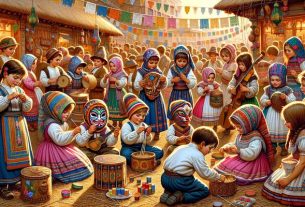Coffee is more than just a beverage—it is a cultural experience, a ritual, and a way of life for millions of people around the world, Exploring The Rich Blend Of Coffee. From the bustling cafés of Paris to the traditional coffee ceremonies of Ethiopia, coffee has woven itself into the fabric of human civilization. Cofeemanga Chronicles takes you on an exciting journey to explore the rich history, diverse flavors, and cultural significance of coffee, revealing why this beloved drink continues to captivate people across generations.
The Origins of Coffee: A Story of Discovery and Trade
The history of coffee dates back centuries, with its origins traced to the highlands of Ethiopia. According to legend, a goat herder named Kaldi discovered coffee when he noticed his goats becoming unusually energetic after eating red cherries from a certain tree. Kaldi shared his discovery with local monks, who used the beans to make a drink that kept them awake during long hours of prayer.
From Ethiopia, coffee spread to the Arabian Peninsula, where it became an integral part of Middle Eastern culture. By the 15th century, coffee houses, known as qahveh khaneh, began appearing in cities like Mecca, Cairo, and Istanbul, serving as social hubs for conversation, music, and intellectual debate. Eventually, European traders introduced coffee to the West, where it gained immense popularity and became the foundation of today’s global coffee culture.
The Art of Coffee Brewing: Methods and Techniques
One of the most fascinating aspects of coffee is the variety of brewing methods used around the world. Each technique brings out unique flavors, aromas, and textures in the coffee, creating a distinct drinking experience.
1. Espresso: The Heart of Modern Coffee Culture
Espresso is the foundation of many popular coffee drinks, including lattes, cappuccinos, and Americanos. This brewing method forces hot water through finely-ground coffee under high pressure, creating a rich, concentrated shot with a layer of crema on top. Originating in Italy, espresso is beloved for its bold flavor and smooth texture.
2. Pour-Over: The Art of Precision
The pour-over method, commonly associated with Japanese and third-wave coffee culture, involves slowly pouring hot water over freshly ground coffee in a filter. This method allows for a clean, aromatic, and nuanced cup, bringing out delicate flavors that might be lost in other brewing techniques.
3. French Press: A Classic and Robust Brew
The French press, or plunger pot, is known for its full-bodied and rich flavor.
4. Turkish Coffee: A Tradition of Finesse
Turkish coffee is brewed using finely ground coffee, water, and sugar, simmered in a small pot called a cezve. The result is a thick, intense coffee with a layer of foam on top. This brewing style is deeply embedded in Middle Eastern, Balkan, and Central Asian cultures, often accompanied by fortune-telling using coffee grounds.
5. Cold Brew: A Smooth and Refreshing Twist
Cold brew coffee is made by steeping coarse coffee grounds in cold water for 12–24 hours. This method produces a smooth, low-acidity coffee that is refreshing and easy to drink, making it a favorite in warm climates.
The Flavor Profile of Coffee: Understanding Tasting Notes
Just like wine, coffee has complex flavor notes that vary based on factors such as origin, roast level, and brewing method. Coffee tasters often describe flavors using terms like:
- Fruity and Floral (Ethiopian Yirgacheffe)
- Nutty and Chocolaty (Brazilian Santos)
- Spicy and Earthy (Sumatran Mandheling)
- Citrusy and Bright (Kenyan AA)
The roast level also plays a crucial role in flavor:
- Light roast: Preserves original flavors, often fruity and acidic.
- Medium roast: Balanced flavors with caramel sweetness.
- Dark roast: Bold, smoky, and slightly bitter with lower acidity.
Coffee Culture Around the World: A Global Phenomenon
Coffee is more than just a drink—it is a cultural symbol that brings people together. Here’s how different cultures celebrate coffee:
1. Italy: The Espresso Ritual
In Italy, coffee is a daily ritual. Italians typically drink a quick espresso shot at the bar, often standing. Cappuccinos are enjoyed in the morning, but never after lunch.
2. Ethiopia: The Coffee Ceremony
This ritual fosters community and hospitality.
3. Japan: Precision and Innovation
Japan has embraced coffee with high attention to detail, perfecting pour-over methods and introducing unique coffee experiences like siphon brewing and coffee jelly desserts.
4. Vietnam: The Unique Egg Coffee
Vietnam is famous for cà phê trứng (egg coffee), made with strong robusta coffee and whipped egg yolk, sugar, and condensed milk, creating a rich and creamy drink.
5. Brazil: The Coffee Giant
Brazil is the largest coffee producer in the world, known for its smooth, nutty coffee often enjoyed as a cafezinho (small, strong coffee served with sugar).
Health Benefits of Coffee: More Than Just a Pick-Me-Up
Beyond its delicious taste and cultural significance, coffee also offers numerous health benefits:
-Boosts Energy & Focus – The caffeine in coffee stimulates the central nervous system, improving alertness and cognitive function.
-Rich in Antioxidants – Coffee contains polyphenols, which help fight inflammation and support heart health.
-Enhances Metabolism – Studies suggest coffee can increase fat burning and metabolic rate.
–Protects Against Diseases – Research links coffee consumption to a lower risk of Parkinson’s disease, Alzheimer’s, and Type 2 diabetes.
Conclusion: A World Connected by Coffee
Coffee is more than just a drink—it’s a story of tradition, craftsmanship, and connection. From ancient Ethiopian coffee ceremonies to modern espresso machines, every cup has a tale to tell. Whether you prefer a bold espresso, a smooth cold brew, or a spiced Turkish coffee, the world of coffee offers endless possibilities.

